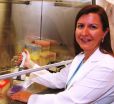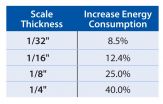(Press-News.org) COLLEGE STATION, Texas, April 25, 2011 - Call them the Jason Bournes of the bacteria world.
Going "off the grid," like rogue secret agents, some bacteria avoid antibiotic treatments by essentially shutting down and hiding until it's safe to come out again, says Thomas Wood, professor in the Artie McFerrin Department of Chemical Engineering at Texas A&M University.
This surreptitious and elaborate survival mechanism is explained in the online April edition of Nature Chemical Biology, which details the research of Wood and his post doctoral student Xiaoxue Wang along with colleagues Breann Brown, Wolfgang Peti and Rebecca Page of Brown University.
"Through our research, we're understanding that some bacteria go to 'sleep,' and that antibiotics only work on bacteria that are metabolically active," Wood explains. "You need actively growing bacteria to be susceptible to antibiotics. If the bacterium goes to sleep, the antibiotics, no matter what they do, are not effective because the bacterium is no longer doing the thing that the antibiotic is trying to shut down."
It's an alternative method for survival, Wood says, that starkly contrasts the widely studied genetically based approaches utilized by bacteria through which bacteria gain resistance to antibiotics as the result of mutations experienced throughout time. This mutation-free response, however, demonstrates that some bacteria need not mutate to survive external stressors, Wood says.
Instead, when triggered by an external stressor such as an antibiotic, a bacterial cell can render itself dormant by triggering an internal reaction that degrades the effectiveness of its own internal antitoxins, Wood explains. With its antitoxins damaged, the toxins present within the bacterial cell are left unchecked and damage the cell's metabolic processes so that it essentially shuts down, he adds.
It's self-inflicted damage but with a purpose.
"The cell normally doesn't want to hurt itself; it wants to grow as fast as possible," Wood states; the raison d'être for a cell is to make another cell," Wood says. "However, most bacteria have this group of proteins, and if this group was active - if you got rid of the antitoxins - this group of toxins would either kill the cell or damage it."
Specifically, Wood and his colleagues found that when encountering oxidative stress, their bacterial cells initiated a process through which an antitoxin called MqsA was degraded, in turn allowing the toxin MqsR to degrade all of the cells' messenger RNA. This messenger RNA, Wood explains, plays a critical intermediate role in the cell's process of manufacturing proteins, so without it the cell can't make proteins. With the protein-manufacturing factory shut down, the bacterial cell goes dormant, and an antibiotic cannot "lock on" to the cell. When the stressor is removed, the bacterial cells eventually come back online and resume their normal activities, Wood says.
"It was the combination of the genetic studies at Texas A&M with our structural studies at Brown University that demonstrated that the proteins MqsR:MqsA form an entirely new family of toxin:antitoxin systems," Page says. "Remarkably, we have shown this system not only controls its own genes, but also many other genes in E. coli, including the gene that controls the response to oxidative stress."
This response mechanism, Wood emphasizes, does not replace the mutation-based approaches that have for years characterized cell behavior; it's merely another method in a multifaceted approach undertaken by bacteria to ensure survival.
"A small community of bacteria is in a sense hedging its bet against a threat to its survival by taking another approach," Wood says. "To the bacteria, this is always a numbers game. In one milliliter you can have a trillion bacterial cells, and they don't always do the same thing under stress.
"If we can determine that this 'going to sleep' is the dominant mechanism utilized by bacteria, then we can begin to figure out how to 'wake them up' so that they will be more susceptible to the antibiotic. This ideally would include simultaneously applying the antibiotic and a chemical that wakes up the bacteria. That's the goal - a more effective antibiotic."
###
Contact: Thomas Wood at (979) 862-1588 or via email: Thomas.Wood@chemail.tamu.edu or Ryan A. Garcia at (979) 845-9237 or via email: ryan.garcia99@tamu.edu.
END
OAK RIDGE, Tenn., April 25, 2011 - Novel properties of ferroelectric materials discovered at the Department of Energy's Oak Ridge National Laboratory are moving scientists one step closer to realizing a new paradigm of electronic memory storage.
A new study led by ORNL's Peter Maksymovych and published in the American Chemical Society's Nano Letters revealed that contrary to previous assumptions, domain walls in ferroelectric materials act as dynamic conductors instead of static ones.
Domain walls, the separation zones only a few atoms wide between opposing states ...
CORVALLIS, Ore. – Amphibian declines around the world have forced many species to the brink of extinction, are much more complex than realized and have multiple causes that are still not fully understood, researchers conclude in a new report.
The search for a single causative factor is often missing the larger picture, they said, and approaches to address the crisis may fail if they don't consider the totality of causes – or could even make things worse.
No one issue can explain all of the population declines that are occurring at an unprecedented rate, and much faster ...
COLUMBUS, Ohio – Mosquitoes make proteins to help them handle the stressful spike in body temperature that's prompted by their hot blood meals, a new study has found.
The mosquito's eating pattern is inherently risky: Taking a blood meal involves finding warm-blooded hosts, avoiding detection, penetrating tough skin and evading any host immune response, not to mention the slap of a human hand.
Until now, the stress of the hot blood meal itself has been overlooked, researchers say.
Scientists have determined in female mosquitoes that the insects protect themselves ...
AMES, Iowa - Like people, plants experience stress. And also, like people, the response to that stress can determine success.
People can exercise, or rest, or talk about the problem.
For plants, ways to deal with stress are internal. And ISU researchers are trying to understand how they do it.
Stephen Howell is a professor of genetics, development and cell biology and former director of the Plant Sciences Institute at ISU. His research is featured in the current issue of the journal Proceedings of the National Academy of Sciences.
"We've discovered a new arm of ...
AUSTIN, Texas-A new low cost test for acute pancreatitis that gets results much faster than existing tests has been developed by scientists at The University of Texas at Austin.
The sensor, which could be produced for as little as a dollar, is built with a 12-cent LED light, aluminum foil, gelatin, milk protein and a few other cheap, easily obtainable materials.
The sensor could help prevent damage from acute pancreatitis, which is a sudden inflammation of the pancreas that can lead to severe stomach pain, nausea, fever, shock and in some cases, death.
"We've turned ...
Following a government backed business start-up scheme, search figures obtained by Google and Experian indicate a significant increase in people searching online for advice on business start-up. Bird and Co Creative, a graphic and web design company, has also experienced a rise in online leads relating to new business marketing. Traditionally, the close of the financial year brings a dip in online searches for terms relating to business start-up. However, this year the trend has changed dramatically - searches for 'business plan UK' were up 60pc and 'small business loan' ...
The formation of the new coalition government has brought with it numerous changes. The Equality Act 2010 is now under review with considerations to scrap it altogether. Following years of campaigning the act was finally put in place to unify the existing equality laws. The Institute of Equality and Diversity Practitioners (IEDP) are challenging the government's proposed changes and have called a number of emergency meetings to discuss their challenge. Scrapping the act will weaken their powers and void the hard work which has been put into promoting equality and diversity ...
VIDEO:
University of Missouri veterinarians have changed the way veterinarians treat diabetes in animals by adapting a device used to monitor glucose in humans.
Click here for more information.
COLUMBIA, Mo. – Studies show the incidence of diabetes in dogs has increased 200 percent over the past 30 years. Now, University of Missouri veterinarians have changed the way veterinarians treat diabetes in animals by adapting a device used to monitor glucose in humans.
Dogs are ...
Regular preventative maintenance is necessary to keep a restaurant running efficiently and performing to its maximum capability. However, some restaurants may also experience unnecessary visits, which are visits that could be avoided by controlling one of the most common commodity items: water.
Water not only affects a restaurant's utility bills, but it can also be the source of unnecessary maintenance. How often is a service company performing ice machine cleanings? Or descaling a piece of espresso or steam equipment? Controlling water quality can help to optimize ...
Monday, April 25, 2011
CHAPEL HILL, N.C. – Unintentional overdose deaths in teens and adults have reached epidemic proportions in the U.S. In some 20 states in 2007 the number of unintentional drug poisoning deaths exceeded either motor vehicle crashes or suicides, two of the leading causes of injury death. Prescription opioid pain medications are driving this overdose epidemic. Opioid pain medications were also involved in about 36 percent of all poisoning suicides in the U.S. in 2007.
In a commentary article released ahead of the print version in the April 19, 2011 ...


